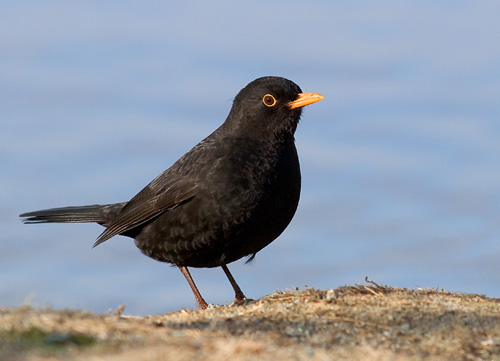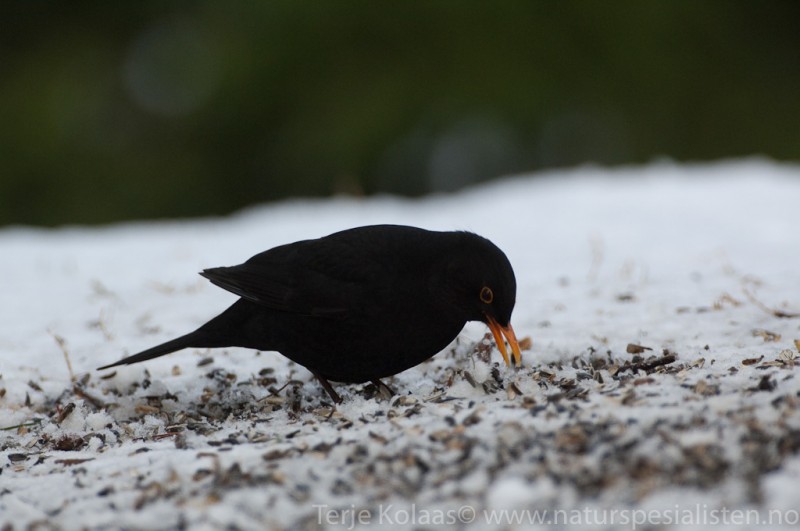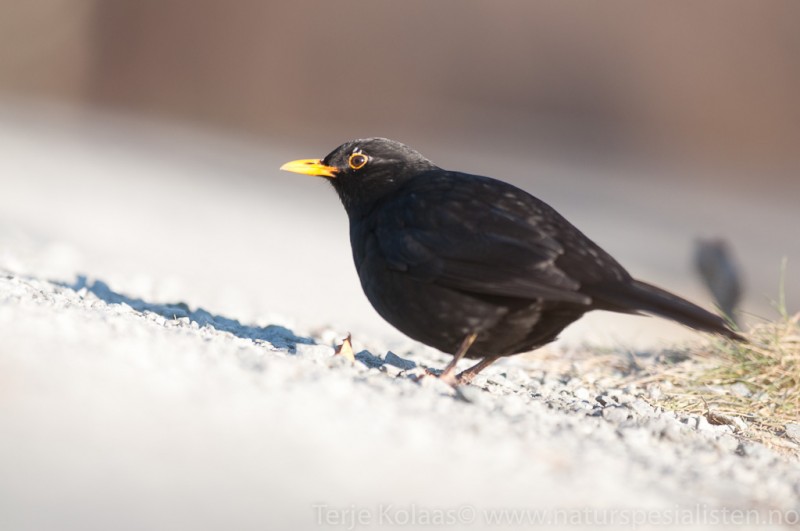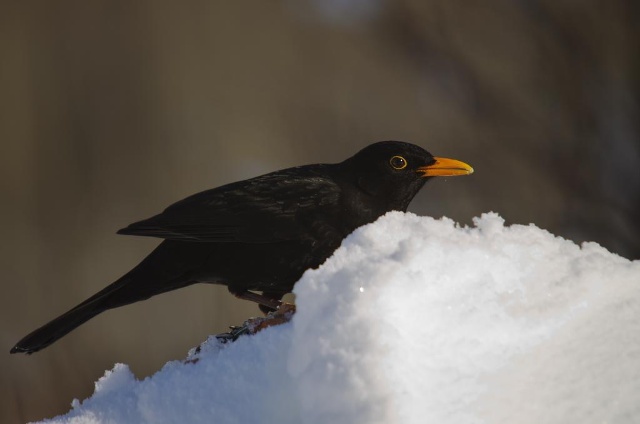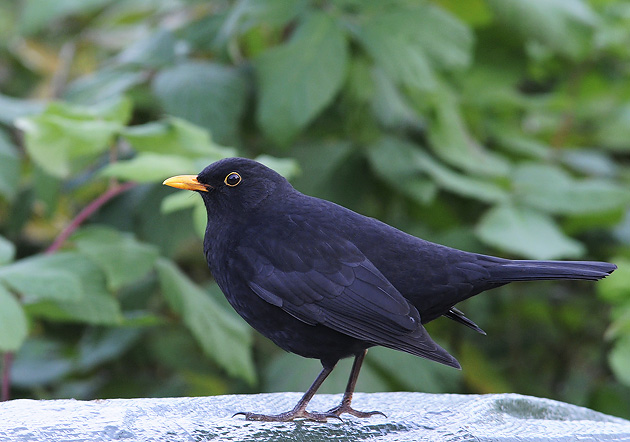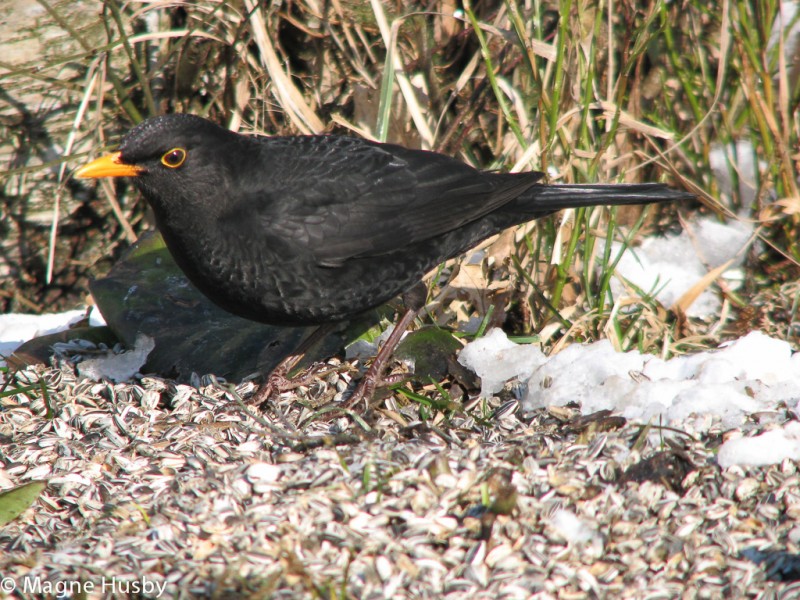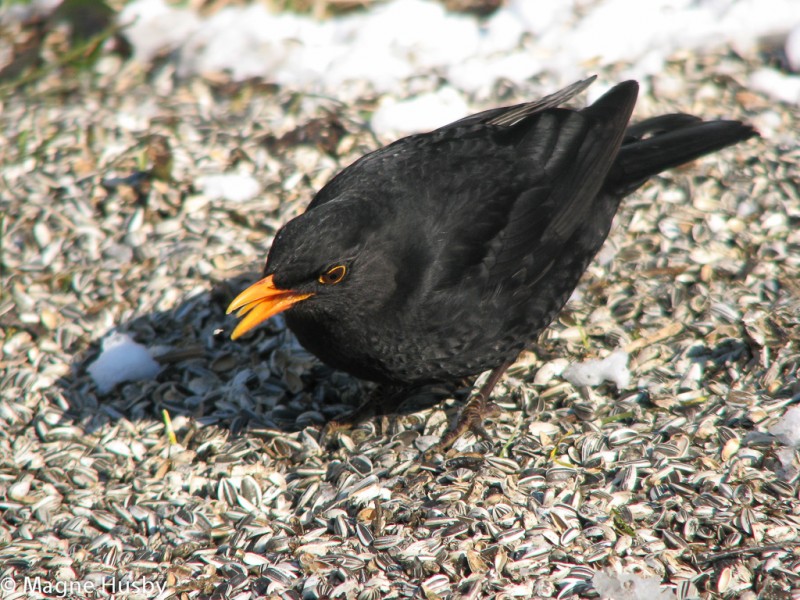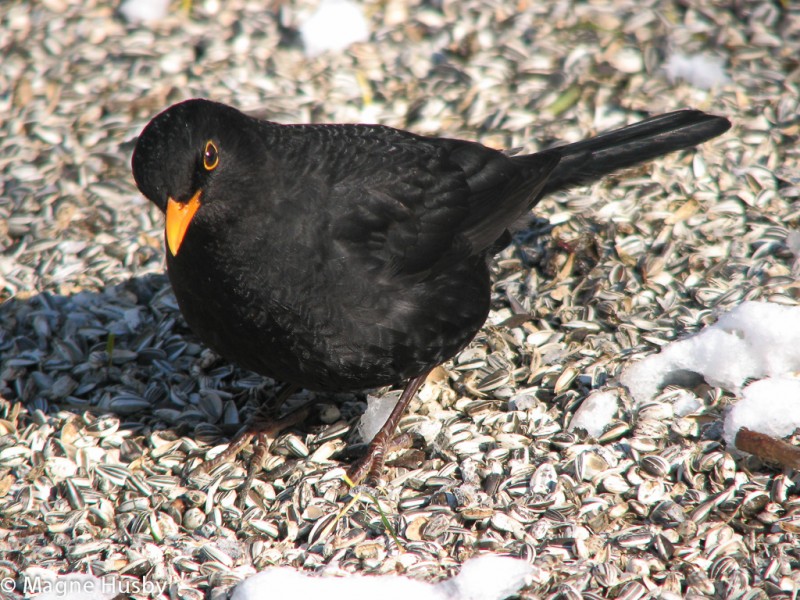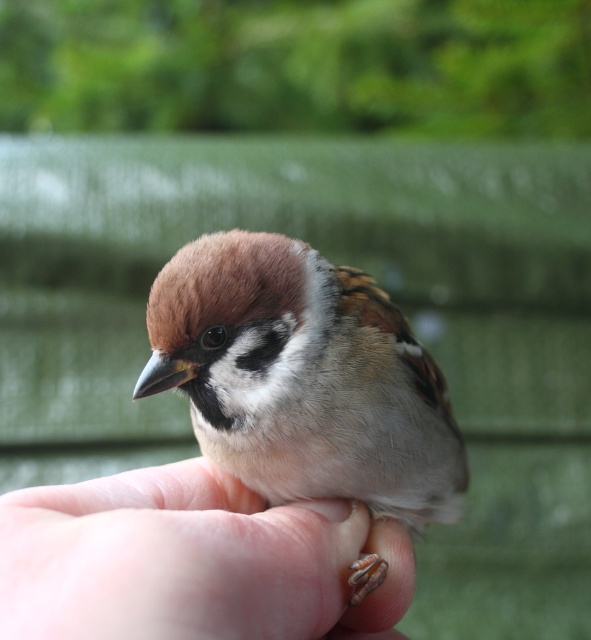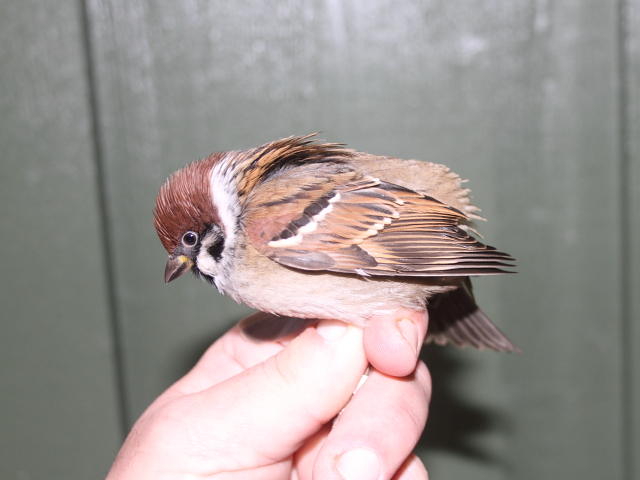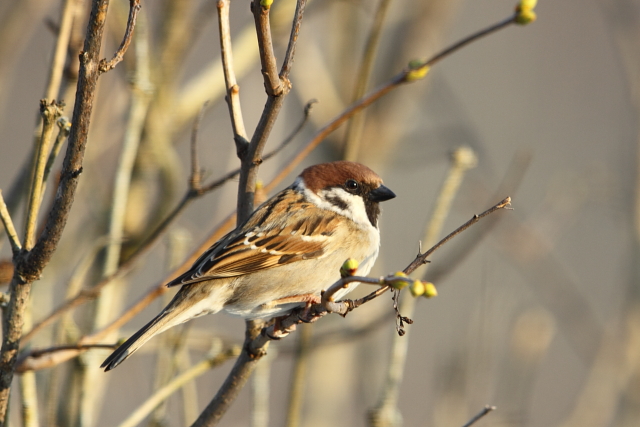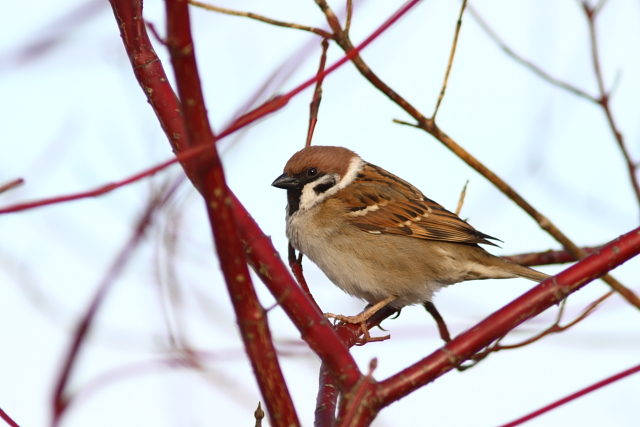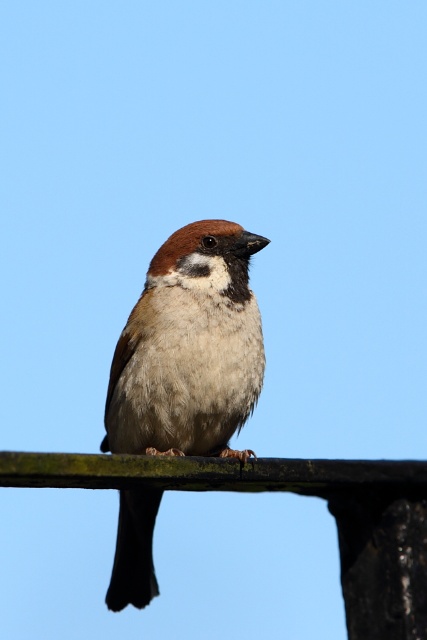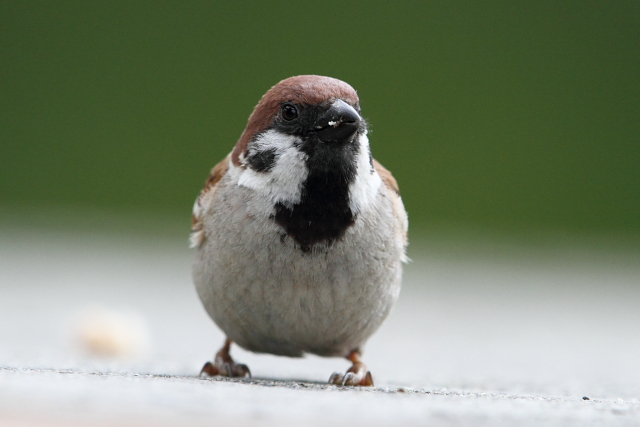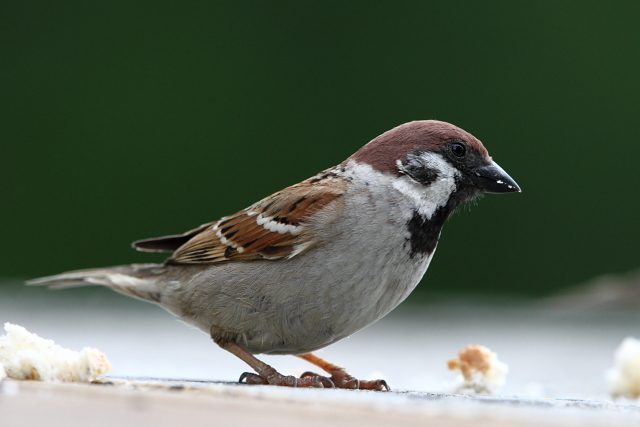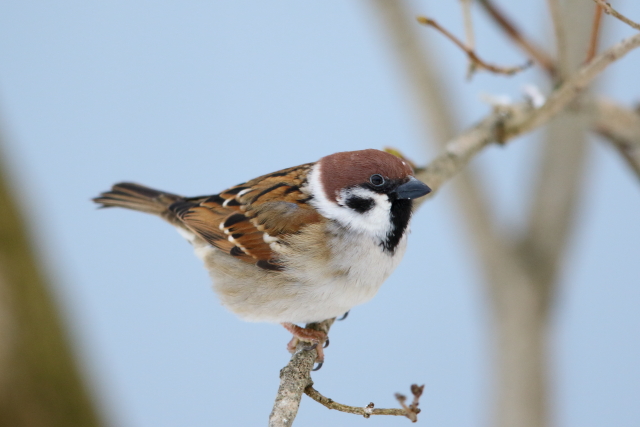Blackbird (Turdus merula)
Tree Sparrow (Passer montanus)
Male shiny black with bright yellow bill and yellow eye-ring. Female dark brown above. Throat and chest in slightly paler tones with diffuse dark spots. Juveniles similar to females, but with fine buff streaking all over. More long-tailed than Redwing and Song Thrush. Flight action with alternating bursts of wing-beats and with little undulation (see Fieldfare).
Sound:One of the most appreciated song birds. Very melodious and resonant, with long mellow notes and a large register. Less high pitched sounds than Song Thrush, and seldom repeats a phrase. Timbre fuller than both Song Thrush and Mistle Thrush. Well defined pauses between phrases, giving the song a relaxed pace. Large repertoire of calls. Most characteristic is a hysterical rattle often given when flushed. Sometimes preceded by a hard "tok tok", which then accelerates into a panicky arpeggio-like crescendo. Contact call a thin redwing-like "srrreee". Alarm calls: a sharp "tink, tink" or a very high pitch falling whistle.
Alarm call, song:
Distribution:
Xeno-canto: map
Ecology:Birdlife ecology
Links:
Observation.org Latest observations
Image search Flickr NB! May give other species
CCDiffers from House Sparrow by warm brown crown, white cheeks, white (incomplete) collar and diagnostic, black cheek patch. From Spanish Sparrow by cheek patch, and lack of black breast markings. Brown and streaked rump. The black bib does not expand towards the chest. Head profile rounder and neater than House Sparrow, with slightly smaller bill. Identification by profile alone is possible with practice. Sexes and ages alike.
Sound:Distinct, high-pitched and explosive contact-call; "che-witt" typically given in flight. Second syllable rising rapidly in pitch. Most other sounds similar to House Sparrow, and may be difficult to identify. Chattering sounds are generally harder, and song slightly higher pitched than House Sparrow.
Call and song:
Distribution:
Wikipedia: map (se also Xeno-canto below)
Ecology:Birdlife ecology
Links:
Observation.org Latest observations
Image search Flickr NB! May give other species
CC
 English
English Albanian
Albanian
 Armenian
Armenian
 Bulgarian
Bulgarian
 Catalan
Catalan
 Croatian
Croatian
 Czech
Czech
 Danish
Danish
 Dutch
Dutch
 Finnish
Finnish
 French
French
 Georgian
Georgian
 German
German
 Greek
Greek
 Hungarian
Hungarian
 Italian
Italian
 Latvian
Latvian
 Lithuanian
Lithuanian
 Macedonian
Macedonian
 Norwegian
Norwegian
 Polish
Polish
 Portuguese
Portuguese
 Romanian
Romanian
 Russian
Russian
 Sami : Lule sami
Sami : Lule sami
 Sami : North sami
Sami : North sami
 Sami : South sami
Sami : South sami
 Scientific names
Scientific names
 Serbian
Serbian
 Spanish
Spanish
 Swedish
Swedish
 Ukrainian
Ukrainian


